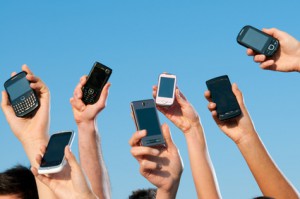Are You Your Child’s Classroom Distraction?
The survey by EdWeek Research Center is in…and the results may surprise you. Specifically, nearly half (47%) of the teachers, principals, and school district leaders surveyed reported that parents are texting, emailing, or messaging their children during class time…at least daily. Another 11% reported parents texting, emailing, or messaging their children during class time a few times week.
Unfortunately, this hinders the school’s effort to curb cellphone use during class, especially when it occurs against school rules with parents telling their children “it’s OK to break the school rules.” As you can imagine, this creates a potential clash between the child receiving the message and their teacher as well as undermining the teacher’s effort to manage classroom behavior. In addition, the disruption of a text, email, or message from a parent disrupts the child’s learning in that classroom. For at least the moment of receiving and replying to the message, they are not fully engaged the learning environment.
Why do I mention this? We often voice concern about the impact of cellphones on our children. There is concern. It is good to talk about the potential impact of cellphones, boundaries and limits regarding cellphone usage, and how to address potential issues that might arise. This survey brings an additional and important aspect of how a cellphone impacts our children to our attention: parents.
Parents, to help our children manage their cellphones wisely, we need to look at ourselves and our own fears and insecurities. Then we need to take responsibility to address those fears and insecurities independent of our children. We may also take time to consider how we utilize our cellphones to meet our needs, sometimes at the expense of our children’s opportunity to learn and find healthy ways to meet those needs.
When we take the time to assess our cellphone use and so use it wisely, we will provide our children with a positive role model of wise cellphone usage, one in which we control our cellphone usage rather than the cellphone driving our needs and usage. I believe we will also see our children grow more independent and secure as they follow our example. When both we and our children use our cellphones wisely, we will gain greater trust that our children are capable and independent. We will likely plan ahead and teach our children to do the same rather than have to “call during class” to tell them something. And, when something happens that we just can’t wait to share, we can enjoy the anticipation of telling them when they get home from school, modeling impulse control.

-0 Comment-